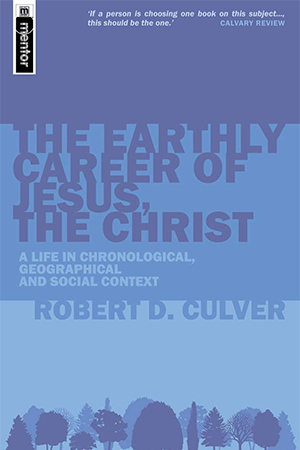This summary concerns this week’s reading between both texts ‘One Perfect Life, The Complete Story of the Lord Jesus’ (MacArthur), and ‘The Earthly Career of Jesus, the Christ, A Life in Chronological, Geographical and Social Context (Culver).’ Throughout the written comments and observations given here, both texts’ substance is brought together to form a coherent view about the Perean period of Jesus’ life. More generally, the time of Jesus’ ministry from the end of Galilee to His time in neighboring areas in furtherance of the gospel and the emerging presence of the Kingdom of God.
As events in Galilee and Capernaum transpired, the conditions by which Jesus was able to carry out His ministry became more limited. For various reasons stemming from the people rejecting Jesus as the promised and prophesied Messiah, He transitioned from a public ministry to a more reserved or private and careful presence throughout Northern Israel. In His frustration with Galilean towns (Matt 11:21), He set out to various adjacent areas in Samaria and farther toward Trans-Jordan. To continue in His teaching with the apostles and minister to people while visiting towns in these areas, we recognize in Scripture the many events and circumstances that occurred.
There are two distinct intervals of time that concern the ending of Jesus’ time and ministry within Galilee. Beginning in Galilee, with His apostles, Jesus directed more focus toward the training of His chosen twelve. Namely, He concentrated His efforts toward their spiritual and character development as they grew closer to Him and in the relationship with one another. The many teachings about the Kingdom and His identity toward fulfilling His purpose in Jerusalem were of paramount interest. As He traveled with His apostles to Gentile and pagan areas, His efforts were a direct and overt message to recognize and understand their role within the Kingdom. As Israel was to be a kingdom of priests, as the twelve tribes of Israel, they were to become representatives for God’s Kingdom within the Old Covenant of Israel and the nations.
The New Covenant was to become sealed with the emergence of the Kingdom of God, the death and resurrection of Christ, and the Holy Spirit’s outpouring. To set the stage for them to become kingdom builders. Pioneers of the Church, all twelve, to become representatives as intended all along. Only this time, with direct training from Galilee onward, the Kingdom of God was about to arrive, and it was of utmost importance they were ready. Through teaching, parables, confrontations, healings, casting out unclean spirits, warnings, or events, their retention was aided by their direct involvement. For maximum and meaningful retention as new believers within the Kingdom were sure to come.
The transfiguration was a demarcation point of the Kingdom’s arrival. Due to my Psalm 82 and Deuteronomy 32 worldview, I happen to believe this occurred on Mt Hermon, in Gentile territory, not on Mt Tabor, for historical, theological, and spiritual reasons I wrote at length about earlier. Nevertheless, from the time of Jesus’ transfiguration culminating from the last six months of His ministry, Peter, James, and John witnessed His glorified state of being. While in the presence of Moses, and Elijah, Jesus, in turn, hears the voice of the Father to exhort His apostles all to cement their conviction and certainty that He is the Son of God. In His transfigured state, the Messiah of Israel appeared before His apostles to demonstrate that the Kingdom had arrived. It was a pronouncement originating from within Gentile and pagan territory as a declaration over spiritual foes opposed to Him and His work. The arrival of the Kingdom of God was that “His house may be filled” (Lk 14:23) and from among the “highways and hedges” in part because Israel rejected their Messiah.
Within the last six months of Jesus’ ministry, from Phoenicia to Trans-Jordan, Judea, Samaria, and into Jerusalem, He covered a lot of territory from town to town, both preaching and teaching. Yet remaining more distant and separated from the crowds, as compared to earlier intervals of ministry, His trajectory toward a final appearance at the temple became a clear and necessary certainty. Interwoven throughout the MacArthur text, the reader can easily see the common thread of Christ’s message concerning the Kingdom of God and His presence now upon the Jews and the surrounding peoples.
Jesus’ ministry was fulfilled as intended. So that we can share in answer to John the Baptist’s question, “Are you the One who has come, or shall we look for another? (Mt 11:3), ” we see by what He has done that He is, in fact, the Messiah, the Son of God, and King for a Kingdom newly arrived.














